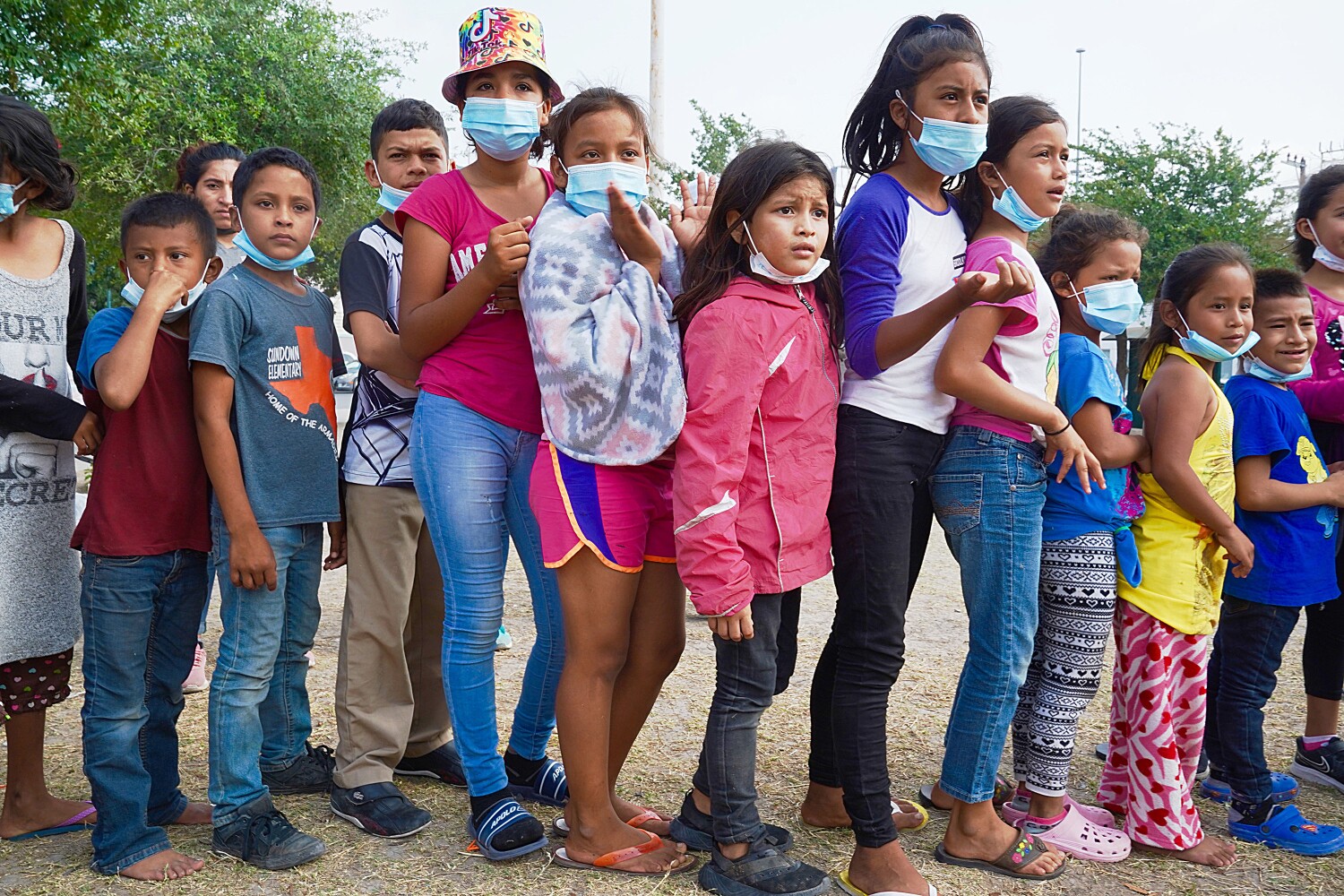After the girl’s grandfather died, she traveled from Guatemala to the Texas border with her uncle.
Border Patrol agents separated them. The girl, then 10, ended up in foster care, while her uncle was deported, according to her attorney, Miriam Enriquez.
Such painful separations could be avoided under a new Biden administration program that will allow children to quickly reunite with relatives like uncles and grandparents at the border.
The girl, whom the attorney did not name to protect her privacy, is now 14 and still in foster care in Southern California while her asylum case is being adjudicated.
Since arriving in the U.S. in early 2019, she has learned Spanish and English, which she now speaks fluently in addition to her Mayan dialect, and is doing well in school, according to Enriquez, a staff attorney with Immigrant Defenders Law Center in Los Angeles.
“Their separations were undoubtedly traumatic and difficult, especially in light of their tender age,” Enriquez said of the girl and another Indigenous child from Guatemala who was also separated from his uncle at the border.
The new effort, called the Trusted Adult Relative Program, is being tested at a Border Patrol station in Texas, according to three sources who were not authorized to speak publicly.
A Department of Homeland Security official, who spoke on the condition of anonymity, said that a few dozen children have been reunified with family members since the program began in May. Agency officials said the program utilizes existing procedures to unify families in an efficient way.
“I think it is not in the best interest of the child to separate them from trusted adults that they’ve been traveling hundreds of miles with,” the official said, adding that taxpayers would not have to foot the bill for lengthy stays in immigration custody.
A child and a non-parental relative are initially separated while immigration officials verify their relationship and that the adult is capable of caring for the child, the sources said. If cleared, they are reunited within about 10 days and will then go through regular immigration proceedings.
The official said that any expansion of the program elsewhere along the border was still being assessed.
“This administration feels strongly about keeping families together and not separating families, and if this does work, it is something we would be looking to eventually apply more broadly,” the official said. “It is too early to make that decision.”
The practice of separating children from non-parental family members at the border is more than a decade old.
While parents were generally allowed to remain with their children, other relatives were separated unless they were the child’s legal guardian. They were then typically deported unless they established a credible asylum claim.
Under the Title 42 policy, which began under President Trump in 2020 and continued through the Biden administration, adult migrants claiming asylum have been turned back without their claims being heard.
Children were expelled, too, until a federal court blocked the practice and the Biden administration allowed children to enter after the ruling was stayed.
Children without relatives in the U.S. can end up in foster care overseen by the federal Office of Refugee Resettlement.
They are allowed to stay in the country while their claims are decided for asylum or Special Immigrant Juvenile Status, which is granted when children cannot reunite with their parents because of abuse or neglect and it is not in their best interest to return home.
The government does not have reliable data on how many children have been separated from non-parental family members at the border.
But Title 42 has probably resulted in more separations because more adults are being deported, immigrant advocates say.
Since the beginning of 2021, Immigrant Defenders Law Center has tracked nearly 300 children who were separated from non-parental relatives at the border. All the adults were turned back under Title 42, according to the center.
In April, the Biden administration announced it would wind down the Title 42 policy, but a federal judge later blocked the effort.
“This has the potential to stop completely unnecessary trauma that interrupts the ability of kids to go through their immigration cases,” Jennifer Nagda, policy director for the Young Center for Immigrant Children’s Rights, said of the new program. “They are so traumatized and upset after being separated from their sister, grandfather or grandmother.”
Last year, as the numbers of unaccompanied children arriving at the border reached record levels and overwhelmed government resources, the Young Center recommended an approach similar to the program that the Biden administration eventually adopted.
Concerns about fraud have long been an impediment to keeping families together. In the new program, officials are using the same procedures as before to verify the relationship between the child and the family member.
For some migrant children, the relative they were traveling with was already their primary caregiver back home.
In 2019, a Human Rights Watch attorney touring a facility for unaccompanied children met a 14-year-old boy who had come from Guatemala with his 29-year-old sister.
The boy told the attorney, Clara Long, that his sister was like a mother to him, because “she’s taken care of me my entire life.”
“On the third day, they took me out of my cage and said I would be separated from my sister, but they didn’t tell me where I was going,” the boy told Long, who recounted the conversation in congressional testimony. “I don’t understand why they separated us. They didn’t give me a chance to say goodbye.”
